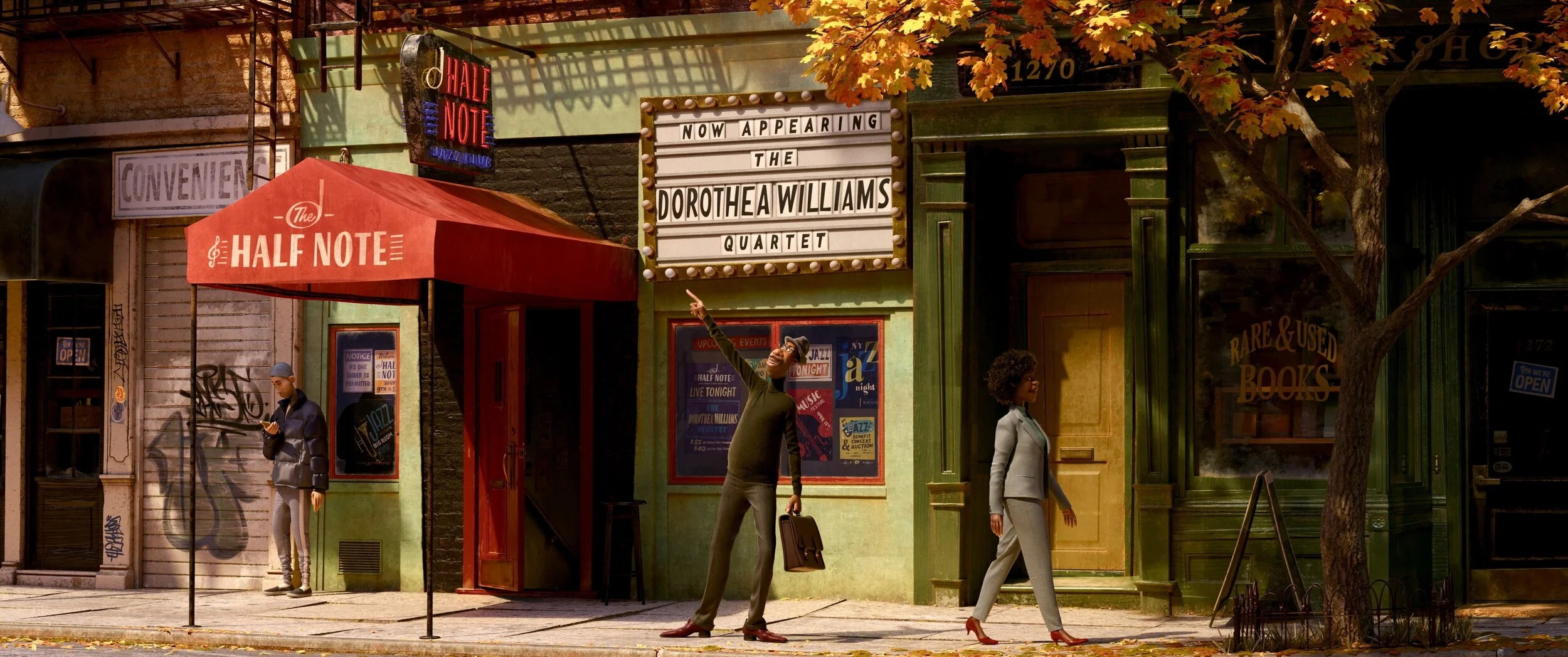MOVIE REVIEW: Soul
SOUL— 4 STARS
Whether you readily see it or not, the great majority of Pixar films (and their adoptive Disney elders) we all know and love carry a streak of existentialism woven inside of a family adventure. Take your pick between the dread, crisis, or anxiety varieties of the given -ism. The hints of the human condition are there, shining within anthropomorphic cars, fish, toys, dinosaurs, and mythical creatures. The proxy of choice often doesn’t matter when Pixar’s tender and enduring storytelling continues to be as good as it is.
Since Monsters, Inc., Up and Inside Out director Pete Docter doesn’t directly hide his envoys of empathy anymore. Honest-to-goodness people are once again front-and-center in his newest film, Soul, coming to Disney+ on Christmas Day. Its people may get magically spun into spectral vessels moving through a very uniquely manufactured system of the heavens, but they’re still humans being human. That said, with Soul, Pixar finally goes all the way with its streak. They evoke existentialism head on.
LESSON #1: HEY, KIDS, LET’S TALK ABOUT DEATH-- Now, no Pixar character is exactly laying on a therapist’s couch pouring out their fears to a professional in dealing with debilitating feelings of dread. All the same, they are still talking through their own existentialism and sorting themselves out through their actions and story arcs. No character stops in front of the audience to bluntly say, “Hey, kids, let’s talk about death” either, but it’s always been in the mix since the hunter shot Bambi’s mother 78 years ago. Be ready for hard swallows, brow rubs, and exasperating “well…” sentence starters that follow the life-and-death questions being played freely in Soul. Be ready too for their signature “Pixar Punch” that makes it all better.
Soul centers on aspiring jazz pianist Joe Gardner, voiced by Oscar winner Jamie Foxx. He’s had mostly feeble luck getting in the biz to match his father’s success. In true Glenn Holland fashion, Joe’s been making ends meet as a burned out middle school band teacher in New York City. His pushy mother Libba (Phylicia Rashad) praises that steady and honest job while Joe feels trapped and unsuccessful at his age.
When one of Joe’s former students, a drummer named Curly (Ahmir Khalib Thompson, AKA Questlove of The Roots) gets him a shot to audition with headlining saxophonist Dorothea Williams (Angela Bassett) at the Half Note Club, Joe jumps at the chance and nails it. This is the kind of steady and inspiring gig he’s been waiting for his whole life. Things are looking up until the careless teacher spills down an open manhole to his apparent death.
His little glowing teal soul suddenly finds himself on a galactic escalator to the bright Great Beyond. Snuffed out on the cusp of fulfilling his dream, the angered Joe veers off destiny’s track and is whisked away to the lower realm of the Great Before. In this tweener space, souls are prepared for their earthly existence by a program of counselors and mentors in the business of inspiration. They are drawn with swirling curves of light created by visual effects supervisor Michael Fong and collectively voiced by the likes of Rachel House, Richard Ayoade, Graham Norton, Wes Studi, and Alice Braga. Through happenstance, Joe becomes attached to a feisty ne’er-do-well soul, #22 voiced by Tina Fey, as his possible way of getting back to the land of the living in time for his big club gig.
LESSON #2: WHAT YOUR BORN TO DO VERSUS WHAT YOU DO WELL-- Having come so close, Joe sees his life on display in the Great Before and finds it meaningless without that top success in line with his passion for music. #22 is even more meh, lacking any drive to try out life at all until she gets an introduction to it from Joe. Distilling the theories and philosophies from a team of no less than 40 credited cultural, music, and faith consultants, Soul goes to great lengths to simplify a presentable difference between the notions of inspirational “spark” and impactful “purpose” of a given person’s life. They are often not one and the same and manifest themselves in different ways. Doing so in this extravagantly artful manner with the improvisational aim of jazz as the vehicle is a thing of beauty from Pete Docter and Pixar.
LESSON #3: THE IMPACT OF MENTORSHIP-- What Soul is doing with this existential journey is nurturing recognition of those qualities in Lesson #2. Many times, both animated caricatures and flesh-and-blood real ones need a little nudging encouragement and formative education towards that necessary self-esteem and self-efficacy. Those helpful individuals who fill that role and effort in our lives, from teachers, coaches, parents, and friends, are indispensable, as our characters naturally learn.
If there’s one knock, it’s the storytelling crutch of writing everything as a manic chase. Like many of Pixar’s movies that come before it (including all three of Docter’s previous directorial efforts), Soul catapults itself towards a contrived deadline for the sake of having an invisible finish line or the carrot at the end of a stick. Playing CGI puppetry with the profundity of forever, ominous themes like those in Soul didn’t need to be in such a damn hurry. Luckily, the movie downshifts to hit its paused reflection marks when the urgency wears off.
In a more positive way and in true Docter fashion following factories of doors and zones of a child’s memories, the vast created landscapes we are whisked away to gobsmack us with detail. The textured hustle and bustle of New York from production designer Steve Pilcher already looked amazing to bring light and lift to all of the smudges and creases of urban life. Moreover, the celestial work of character art director Albert Lozano, sets art director Paul Abadilla, and shading art director Bryn Imagire to go beyond this world is downright stunning. In a way, it’s all mere window dressing for the music.
LESSON #4: MUSIC TAKES YOU TO ANOTHER PLACE-- Good music or bad music, like the intentionally hilarious tune-challenged school band take on the opening Disney title anthem, doesn’t matter. You still have music that will stir the movie’s titular essence within every viewer. With compositions arranged by Jon Batiste (The Late Show with Steven Colbert), Soul commemorates the genre of jazz in a way that can be a catchy introduction to new ears and future lovers. Providing extra audio power is a transcendent score from The Social Network Oscar winners and former rockers Atticus Ross and Trent Reznor, working in this not-so-kiddie pool of doom and delight.
LESSON #5: ASK ABOUT LIFE-- As warned in Lesson #1, Soul is going to get people thinking and talking about the heavy stuff in an approachable yet hanky-destroying way. Contemplate what Lesson #2 is for you. Look back on or strive to become someone for Lesson #3. Chances are, real everyday life wins. Soul is a special and valuable session of these observations and it may very well be Pixar’s first truly adult-skewing picture. Sometimes, watching and listening to a rich parable with loved ones and striking up conversations afterward sitting on a couch beats than laying down on one talking to a stranger about the ideals and beliefs you hold that other people closer to you need to hear.
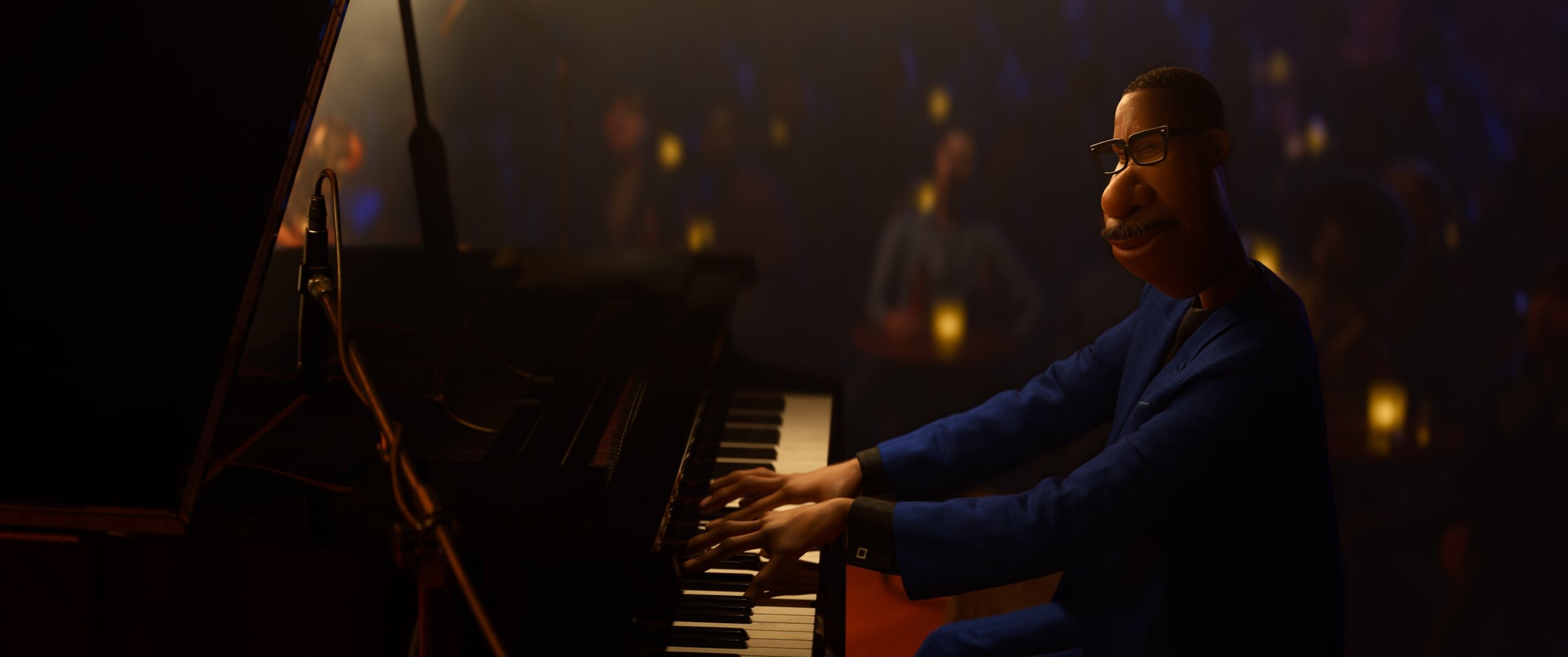
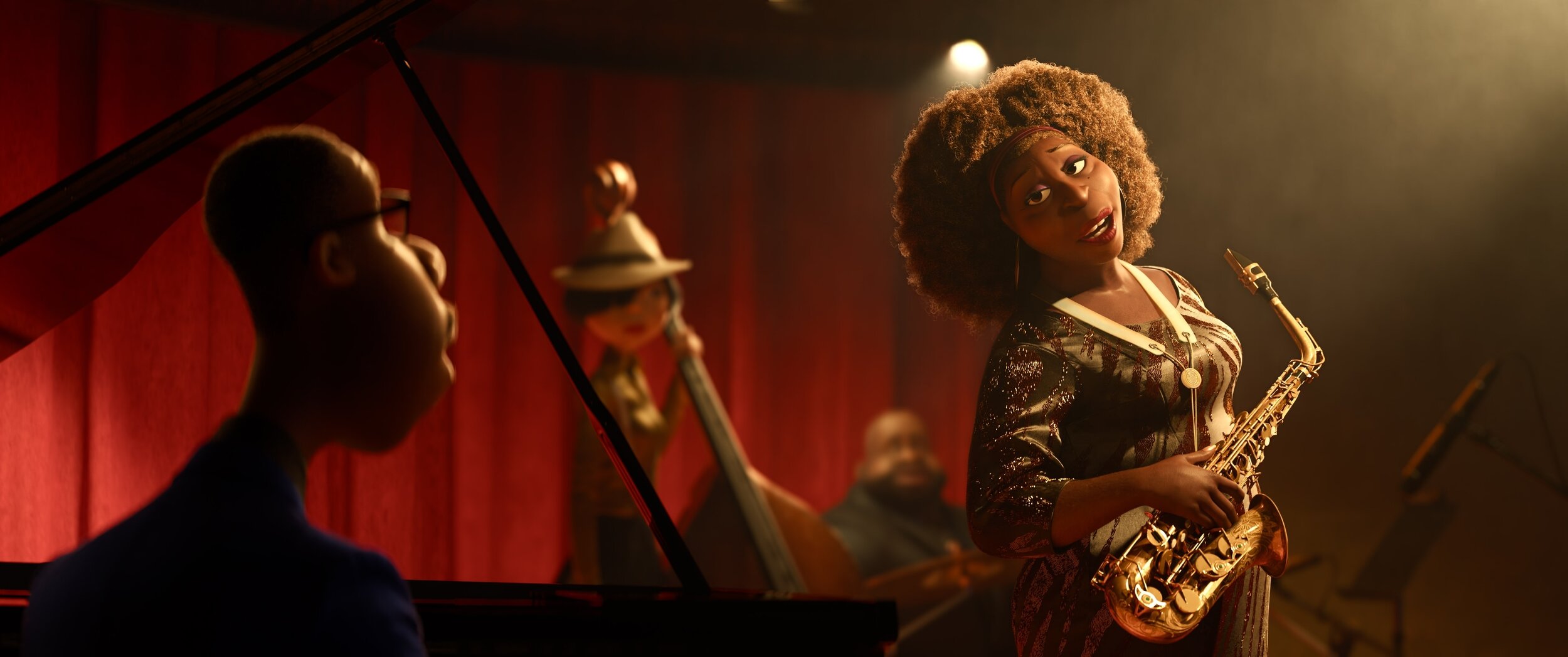
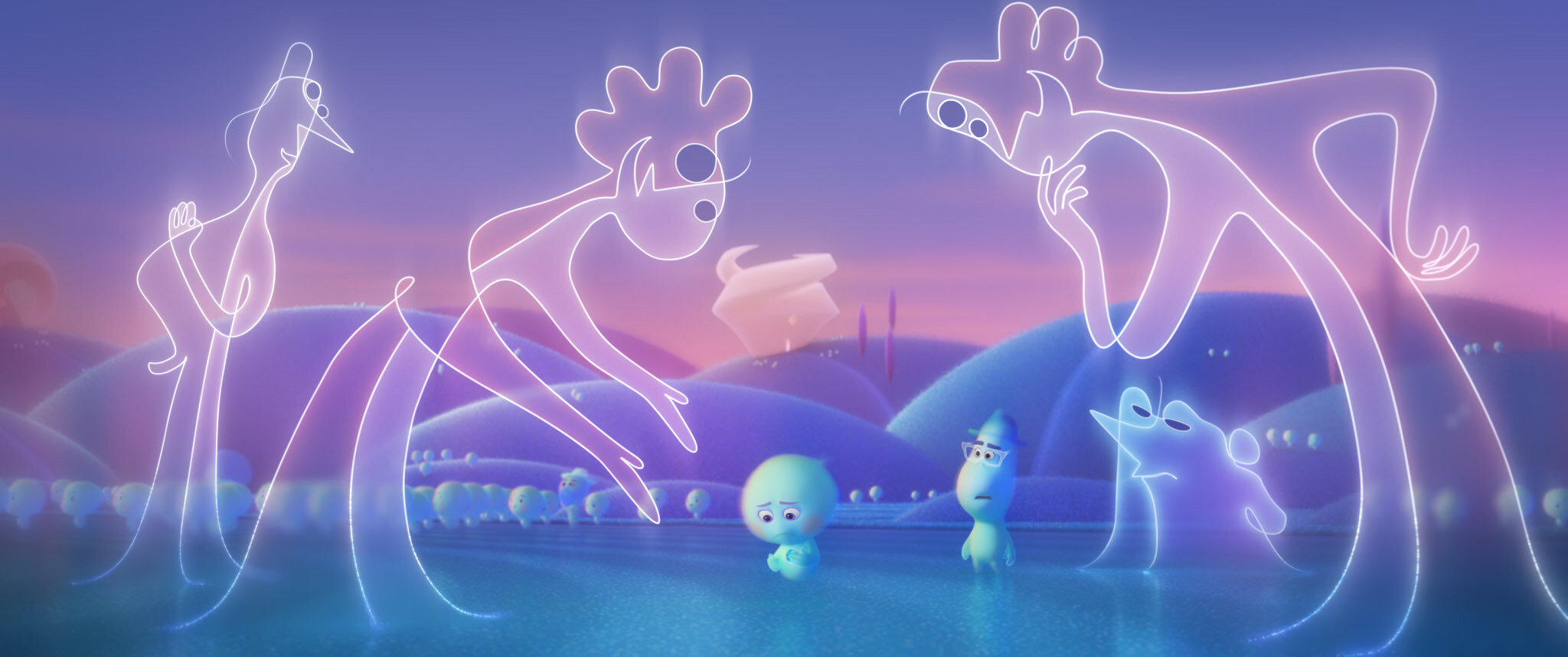
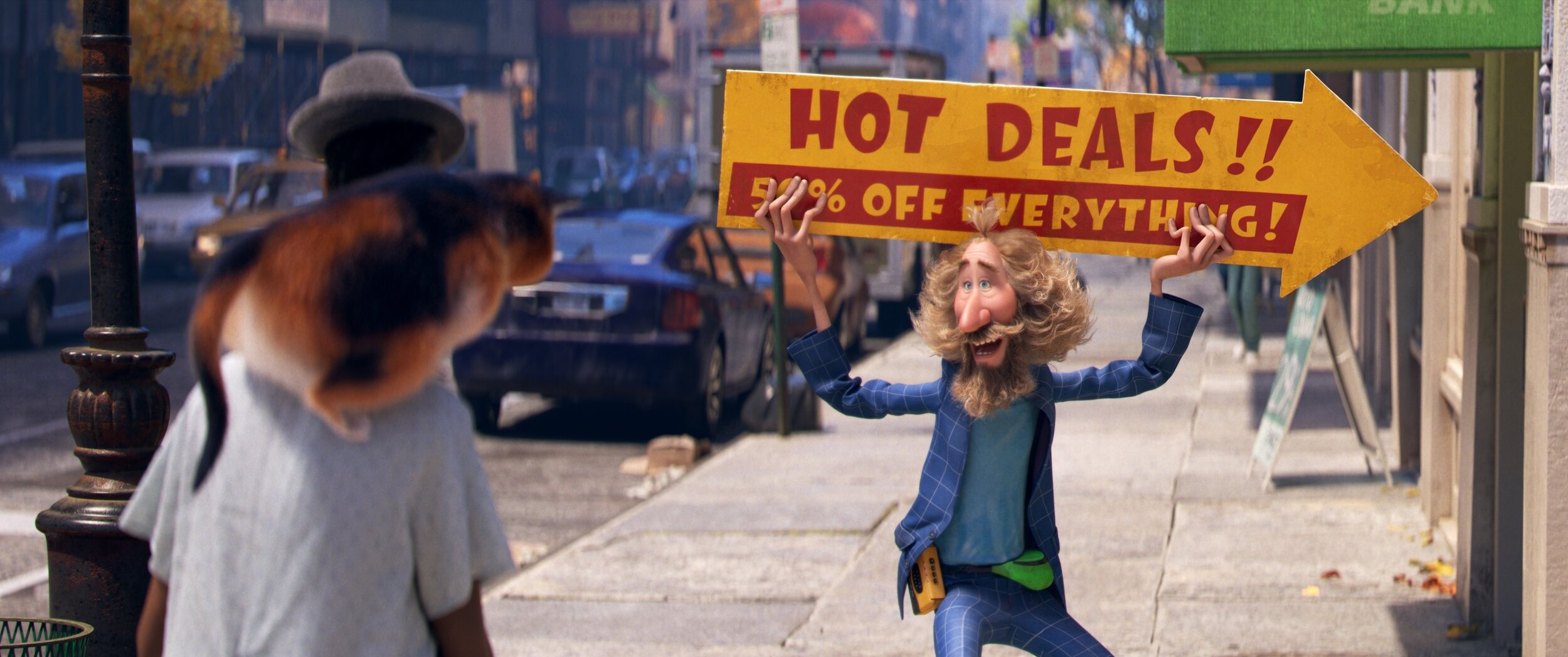
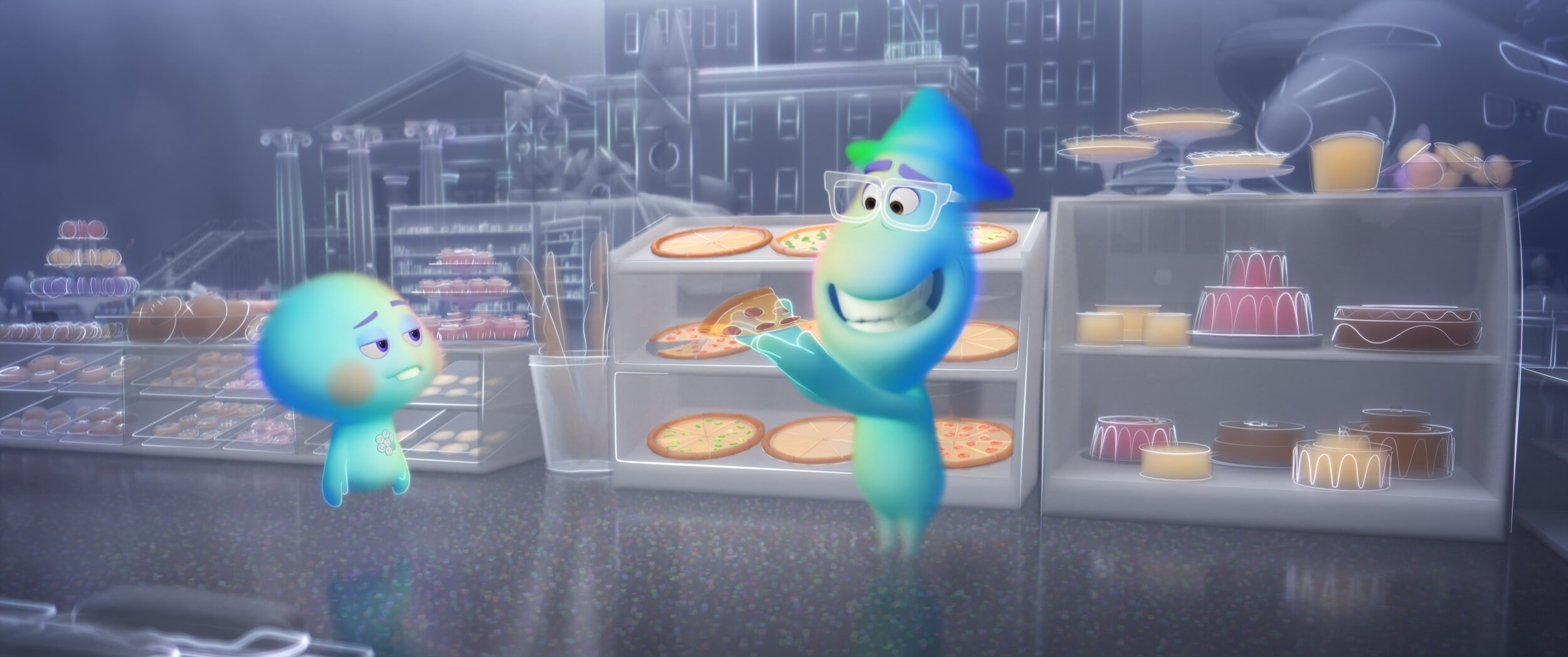
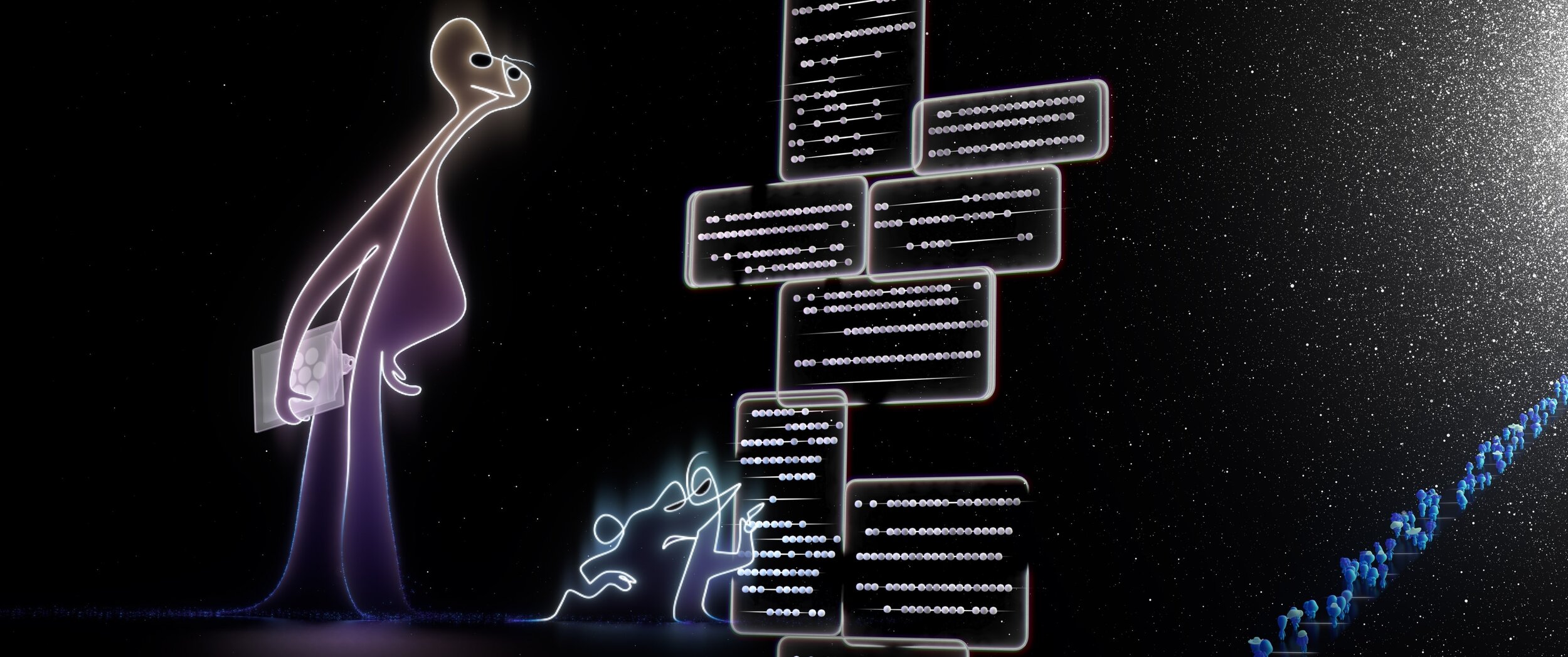
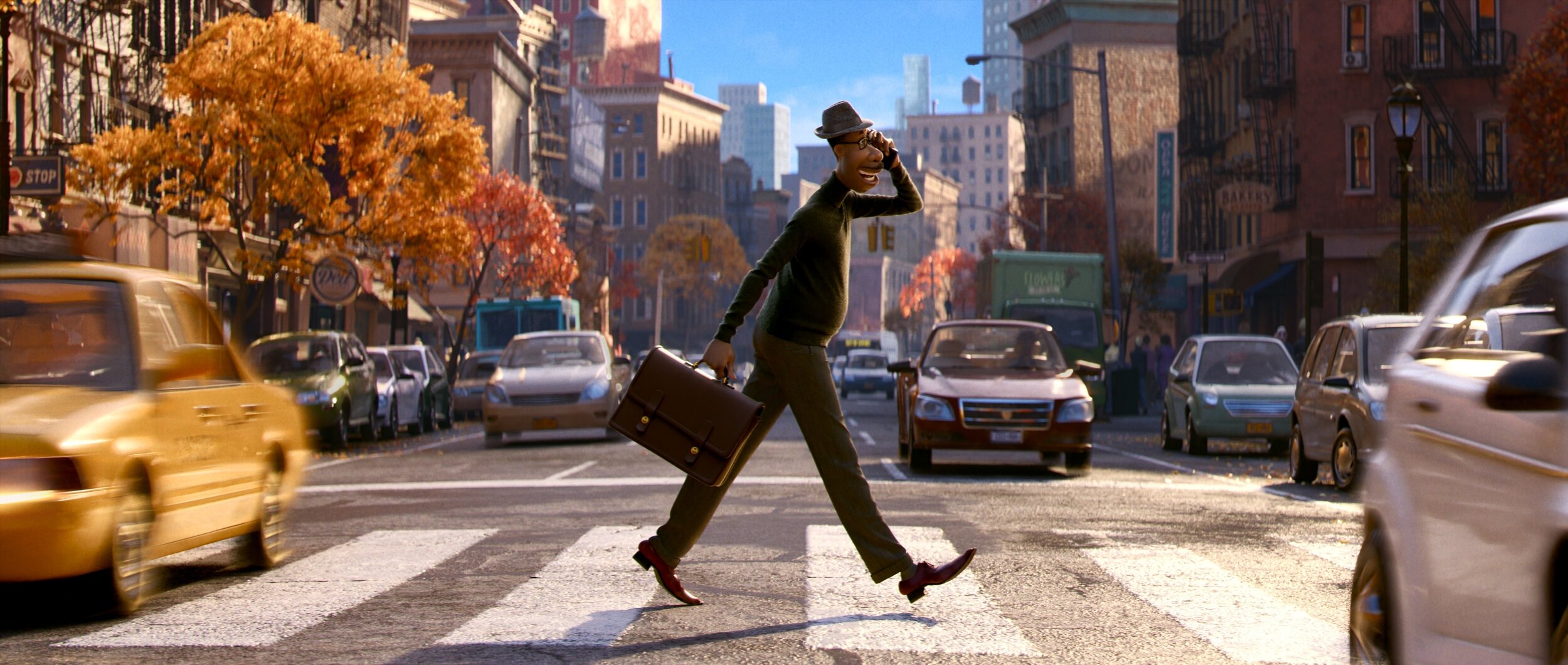
LOGO DESIGNED BY MEENTS ILLUSTRATED (#938)

